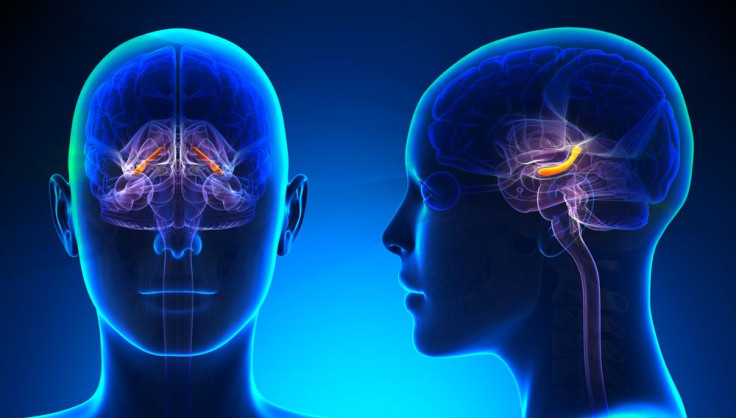Suffering From Major Depression May Shrink The Brain's Hippocampus

People who suffer from recurrent depression have a significantly smaller hippocampus, the brain region associated with forming new memories, new findings reveal.
The study, published in Molecular Psychiatry and co-authored by University of Sydney scholars at the Brain and Mind Research Institute, comprises data from nearly 9,000 people. Utilizing magnetic resonance imaging (MRI) brain scans, as well as clinical data from 1,728 people with depression and using 7,199 healthy individuals as a control, the researchers were able to compare brain volumes in people with and without major depression.
Individuals with recurrent depression made up 65 percent of the study subjects with major depression, and as a result, made up the amount with a smaller hippocampus than those without recurrent depression. Those who had early-age depression (before the age of 21) had a smaller hippocampus than healthy individuals, while 34 percent of those who had their first episode of major depression and didn’t have a smaller hippocampus than healthy individuals were in the minority.
According to the study, hippocampal volume reduction was something that had frequently been found in studies for sufferers of depression. However, what the study found is that the relationship between hippocampal volume reduction and major depression disorder, while complex, shows that those with recurrent depression have a smaller hippocampus than those with early-stage major depression disorder. As shown in other studies, the longer the depression had plagued a person, the greater the decrease in size of the hippocampus, limiting its ability to operate.
While the hippocampus is mostly associated with forming new memories, it's also associated with controlling emotions and learning because of its link to memory. Consider your experiences, especially experiences you've had with friends and family, or things that you learned that made you happy or sad — the hippocampus forms these memories, interacting with the amygdala to process memories and emotions. It actually makes sense that these things would be connected. In a 2013 study from Brigham Young University, researchers found a link between depression and blurred memory, which can be the case due to a decreasing hippocampus. The researchers found that because of the condition, the subjects conflated details as well as blurred distinctions in their memory, which, of course, can alter a memory completely.
The study from the University of Sydney is the largest international study done on depression and brain volumes using an MRI. The study combined datasets from America, Australia, and Europe. It found being able to confront depression during the early symptoms through treatment will make it a lot easier to stall any damage done to the brain, especially among teenagers and young adults. Even though this is an extensive study, more research needs to be done in order to gain more knowledge about the condition and its interaction with the brain.
“Despite intensive research aimed at identifying brain structures linked to depression in recent decades, our understanding of what causes depression is still rudimentary. One reason for this has been the lack of sufficiently large studies, variability in the disease and treatments provided, and the complex interactions between clinical characteristics and brain structure,” Jim Lagopoulos, co-author of the study and associate professor in the Brain and Mind Research Institute at the University of Sydney, said in a statement.
Recurrent major depression is a condition more common than reported. A Centers for Disease Control and Prevention report betweeen 2007-2010 found that nearly eight percent of people aged 12 or higher struggled with depression. The age which reported the highest rate of depression was between 40-59, though it is likely that the condition came before that age. For reasons still unknown, females reported higher rates of depression than males did in every age group. The lifetime risk for depression was about 17 percent.
Source: Schmaal L, Veltman D, et al. Subcortical brain alterations in major depressive disorder: findings from the ENIGMA Major Depressive Disorder working group. Molecular Psychiatry. 2015.



























